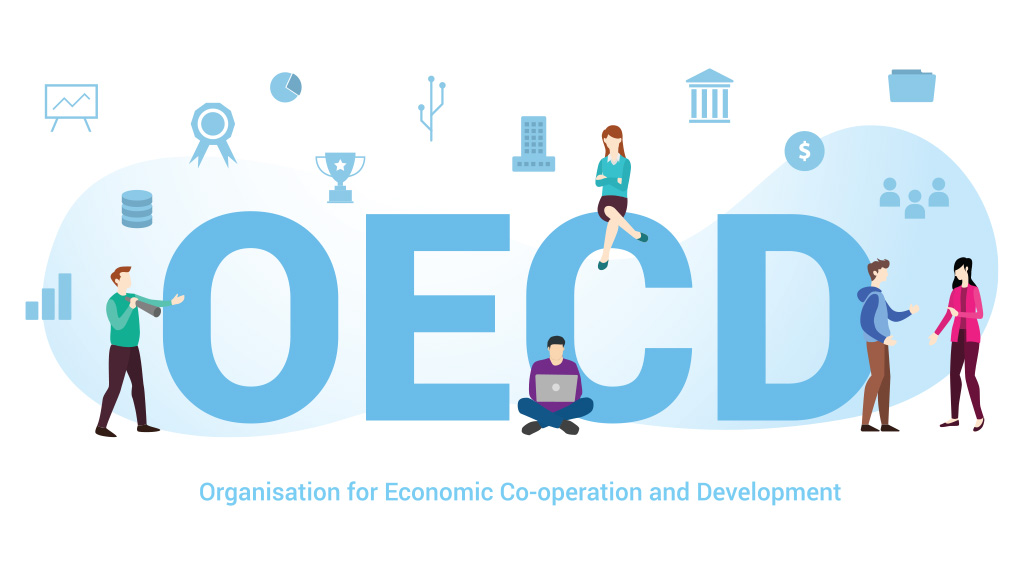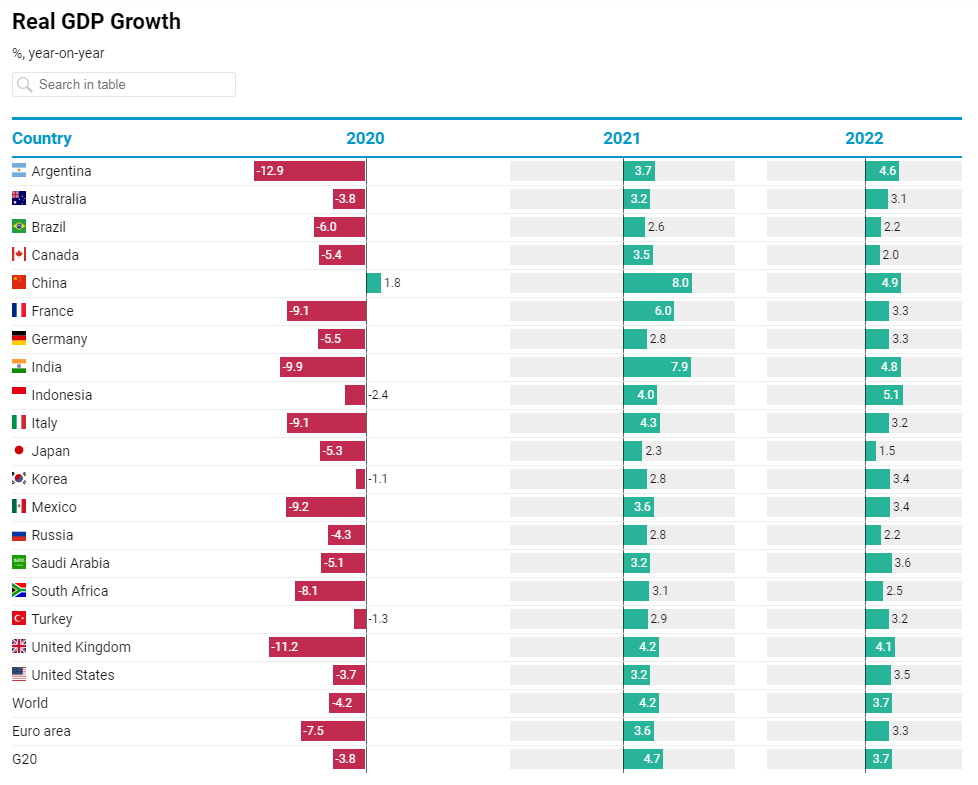
Editor's note: Bradley Blankenship is a Prague-based American journalist, political analyst and freelance reporter. The article reflects the author's opinions, and not necessarily the views of CGTN.
The Organisation for Economic Co-operation and Development (OECD) has released its new December economic outlook report, and it postulated an interesting scenario for the global economic recovery as the pandemic enters the homestretch. Already global gross domestic product (GDP) is expected to grow by 4.2 percent in 2021, after a 4.2 dip in 2020, thanks to vaccination campaigns, concerted health policies and government financial support.
But, according to the report, if the COVID-19 vaccine rollout is fast, the global economy could see a quicker boost. If this could take place, confidence would rocket as uncertainties over the virus dissipate thanks to a coordinated vaccination campaign.
This is a big if. While it is reassuring to see that there is indeed a light at the end of the tunnel and that the world can make that light even brighter by cooperating on the most pressing collective issue, some not very surprising roadblocks stand in the way.
So-called "vaccine nationalism" has been an issue with COVID-19 even before it was declared a pandemic by the World Health Organization (WHO). Scientists immediately began working on a vaccine, and many (wealthier) governments were quick to stake out their supply of a potential candidate.
While it may be good for this minority of countries, it's clear that this will be devastating for poorer countries that will be booted out of such deals due to a lack of funds. This would prolong the global pandemic given that a majority of the global population lives in the developing world, most of which would be excluded from first priority access to these vaccines.
COVAX, a joint public-private partnership initiative by the WHO, Gavi (the Vaccine Alliance) and the Coalition of Epidemic Preparedness Innovations (CEPI), is an important tool in leveling the playing field for vaccine access.
There are, however, some issues inherent to the plan; for example, the fact that countries that enter the program are still allowed to enter into independent deals, which may create problems down the road in terms of pricing and access, and the not-so-lofty goal of reaching 2 billion vaccine doses by 2021 since most of the emerging vaccine candidates require two doses.
But the main problem is political. Nine vaccine candidates with varying degrees of effectiveness and different developers are being supported by COVAX, which could lead some countries to be upset with the particular vaccine they receive or be distrustful if the vaccine they receive is developed by a political adversary.

Screenshot of the OECD Economic Outlook. /Source: OECD (2020)
Screenshot of the OECD Economic Outlook. /Source: OECD (2020)
Notably, the United States opted out of COVAX and set the tone for many other wealthier countries that also might like to adopt an every man for himself policy once vaccines begin to enter the market.
This mentality could potentially devolve from an already-bad vaccine nationalism to vaccine piracy. The U.S. already set this precedent in the spring when it redirected hundreds of thousands of FFP2 masks bound for Germany, which were scarce at that time, in what was described as an act of piracy.
Such behavior is extremely shortsighted and detrimental to the world's collective effort in managing the pandemic. As has been repeated on a routine basis by the WHO, no one is safe until everyone is safe – the pandemic will not end until everyone has fair access to a vaccine.
This is why rolling out a vaccine quickly and effectively with the support of a multilateral framework should be the main focus of every public official – because it is meaningless to even seriously discuss the future, including long-term global (let alone national) economic prospects, without first tackling this issue.
Vaccine nationalism may seem like the right thing; it may appear that this mindset is the responsible thing to do for leaders to ensure the safety of their citizens and the economy, but it's not that simple. The COVID-19 pandemic is a global issue that requires global thinking, and that thinking will pay huge dividends in the end.
And so this is the stark warning found in the OECD's December report: if vaccine rollout is slow, the global economy will suffer a drag.
Unfortunately, there have already been many warnings during the crisis that have not been heeded. For example, experts warned for some time with near-complete certainty that there would indeed be multiple waves of the coronavirus, yet somehow many countries failed to prepare the second time even if they were successful during the first.
But there is hope that a clear material incentive could make this particular warning a bit more serious to policymakers. While faith in public health institutions has been an unfortunate casualty of the crisis, as the old saying goes, "money talks." If the prospects of a robust economic recovery are not enough to win over even the most stubborn politician, then truly nothing is.
(If you want to contribute and have specific expertise, please contact us at opinions@cgtn.com.)

